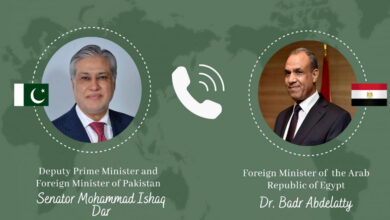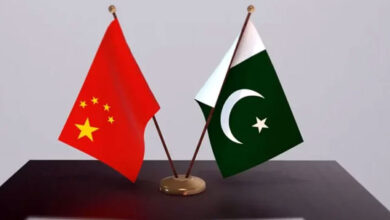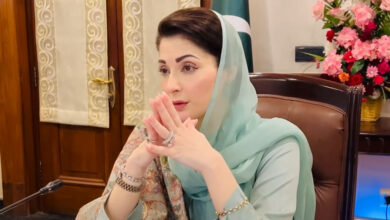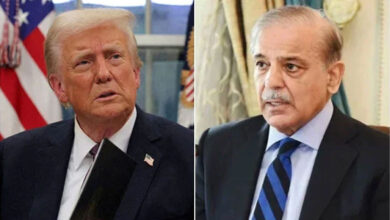سلايدر
أقرأ التالي
19 يناير، 2026
رئيس وزراء إقليم السند يعلن عن تعويضات بقيمة 10 ملايين روبية لضحايا حريق جول بلازا
19 يناير، 2026
باكستان: السلام الدائم مرهون بالقضاء الكامل على الإرهاب
19 يناير، 2026
باكستان تطلق سياسة وطنية لدعم ريادة الأعمال النسائية
19 يناير، 2026
مدير مركز يافا للدراسات: «مجلس السلام» هدفه غاز بحر غزة وإنشاء قناة الجريون
19 يناير، 2026
نائب رئيس وزراء باكستاني ووزير خارجية السعودية يبحثان التعاون المشترك
مقالات ذات صلة
شاهد أيضاً
إغلاق





